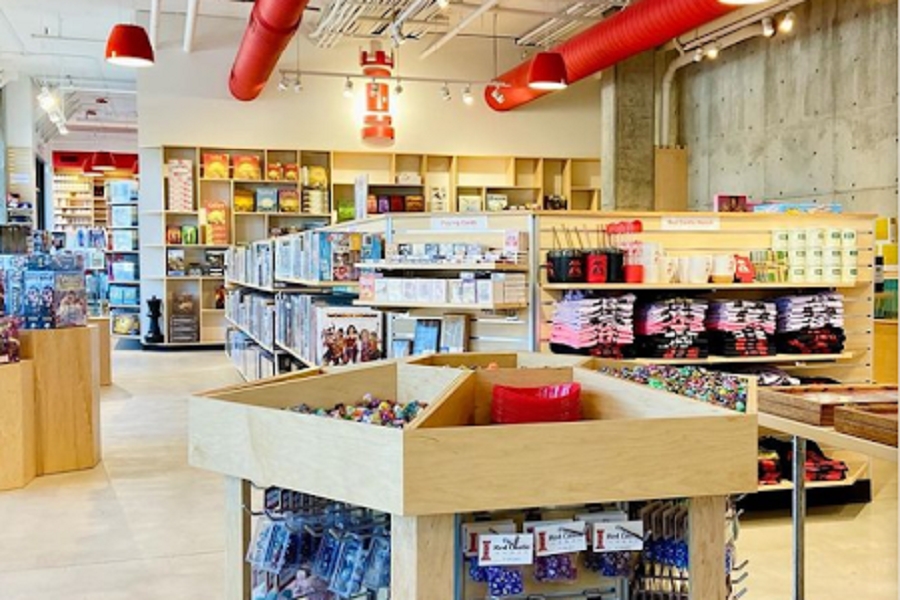Despite supply chain disruptions and competition from large e-commerce websites, retailers and local vendors are in for a huge holiday season.
For Matthew Mičetić, co-owner of Red Castle Games in Portland, supply chain blockages have led to an irregular holiday season so far.
Games, toys and collectables is a highly seasonal industry — Red Castle typically does 35 to 40% of its total business between November and December — but product delays have caused some shoppers aggravation, led to missed sales and the occasional negative interaction.
“Managing expectations is really difficult. Sometimes customers come in looking for a particular game we don’t have,” says Mičetić. Sometimes they don’t come back and leave a negative review on Google.”
Supply chain issues have led many seasonal businesses to experience stock fluctuations. Those shortages, along with inflation, have cut into some retailers’ seasonal profit margins.
But small retailers also say there’s a higher demand for gifts this holiday season, and that by relying more heavily on local networks — and offering services like home delivery — allowing them to breathe easily as December progresses.
Mičetić says customer expectations are always high during the holidays, and supply chain issues have meant delays and shortages for some of the year’s most-hyped products. This year marked the 25th anniversary of Pokémon, which meant a new slate of collector’s edition games, toys and accessories. Unfathomable, a new release from popular designer Fantasy Flight games, lost a quarter of its product when a shipping container went missing.
One area where Mičetić has not had difficulty is the number of holiday shoppers. Last year, Red Castle games began offering home delivery to compete with larger online retailers like Amazon and adapt to the COVID-19 pandemic. Now Red Castle has diversified its distributors to include local game and puzzle makers.
“We used to only carry Ravensburger and Pomegranate puzzles here in Portland. We’ve shifted from a few large distributors to many small local ones, including one three blocks down the street,” says Mičetić.
According to a projection from the National Retail Federation, spending in November and December could grow as much as 11.5% compared to 2020, higher than the organization’s projections in late October. The federation now expects sales in November and December to reach a record-breaking high of between $834.4 billion and $859 billion.
Wine and spirits — another product frequently gifted during the holiday seasons — have also seen supply chain issues.
“This year has been a bit of a rough one. A year ago we started having empty shelves and had to scramble to find an alternative,” says Randy Stokes, manager and buyer of Sundance Wine Cellars in Eugene. “International wines have been affected the most. One month we’ll get only French wine.”
Although Stokes says he is usually able to find alternatives when customers’ preferred wines are not in stock, glass shortages — which have increased the price of glass 45% compared to 2019 — have made champagne harder to come by. Wine sales typically jump between 50% and 70% during the holidays. Champagne and sparkling wine typically quadruple in the two weeks between Christmas and New Year’s Eve.
Because of supply chain slowdowns, dessert and bakery sales, which also see more customers over the holidays, have been going to more small local businesses.
“Supply chain issues have brought people together in some ways like the pandemic has brought people together,” says River Bonilla, owner of Fig and Ferns gluten-free bakery in Eugene. Bonilla began her baked goods line during the pandemic, and has sold out of product nearly every week. Having lived through the heights of the COVID-19 pandemic as a new business owner, Bonilla says customers and distributor’s increased willingness to buy local products has just as much to do with culture as with the supply chain.
“I think this has shifted people’s focus. I think people are caring more about supporting local businesses and keeping people afloat within their own community,” Bonilla says.
To subscribe to Oregon Business, click here.







